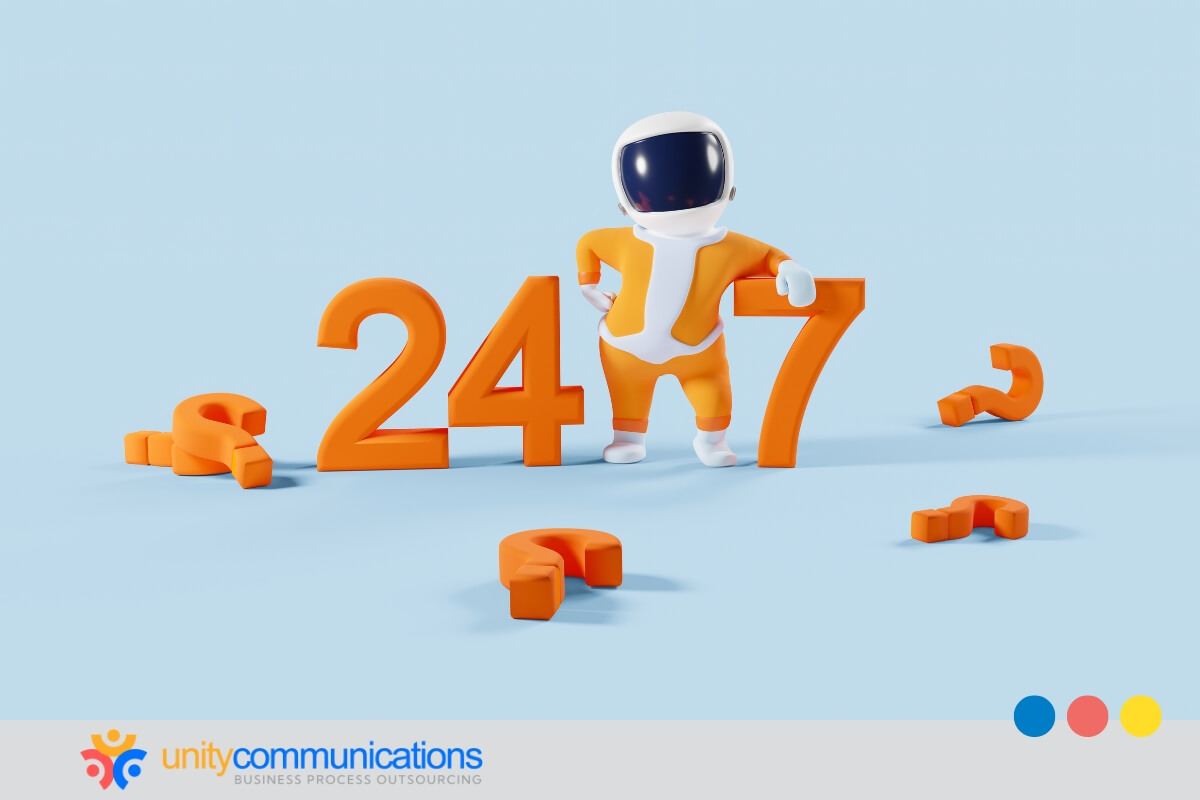IN THIS ARTICLE
Table of Contents
With all the hype surrounding artificial intelligence (AI), it’s easy to think of it as futuristic or far-off. In reality, AI is already here, transforming how we live, work, and grow businesses. From unlocking your smartphone to receiving personalized product or streaming recommendations, AI works behind the scenes every day.
On the one hand, AI drives productivity, enables smarter decisions, and creates new market opportunities. On the other hand, it introduces ethical dilemmas, security concerns, and the risk of over-reliance on automation.
This article explores the key advantages and disadvantages of AI for business growth and how to apply AI responsibly to gain a competitive edge.
Key advantages and disadvantages of AI for business

To start, what is artificial intelligence? AI is a system and algorithm designed to mimic human intelligence in analyzing data, learning from patterns, and making decisions with little to no human intervention. Companies can leverage these abilities for practical applications that drive measurable growth.
Advantages of using AI for business
When discussing the advantages and disadvantages of AI, it’s essential to begin with the positive impact it can have on organizations.
Here are the advantages that demonstrate AI’s transformative potential for business:
- Increased efficiency and productivity
One of the most significant advantages of AI in business is its ability to enhance efficiency. While human teams often spend hours on repetitive, rule-based tasks, AI can automate these processes in seconds, so your employees can work on higher-value tasks. Efficiency cuts operating costs and accelerates output, helping you respond faster to market demands.
Recent studies underscore this impact. A survey by EY India found that generative AI could boost productivity in India’s $254 billion IT industry by up to 45% over the next five years. That level of productivity can translate into significant cost savings, faster delivery times, and a stronger competitive position.
When weighing the advantages and disadvantages of AI, efficiency is one of the most immediate benefits you’ll experience.
- Smarter automation and customer interactions
Another major strength of AI is its ability to handle tasks and customer interactions effectively. Unlike efficiency gains within internal operations, automation directly improves how you engage with customers.
AI-driven chatbots, virtual assistants, and AI agents can manage inquiries 24/7, offering immediate responses without requiring human staff to be constantly available. Beyond speed, automation in customer interactions brings consistency.
Every customer receives the same level of service, whether in answering frequently asked questions (FAQs), processing transactions, or guiding users through troubleshooting steps. If you have a large customer base, consistency fosters trust and alleviates the burden on your human support teams.
Gartner predicts that by 2027, chatbots will become the primary customer service channel for roughly a quarter of organizations worldwide. This demonstrates how AI is transforming the customer experience altogether.
When considering the advantages and disadvantages of AI, automation emerges as a notable practical benefit. It enables you to scale customer service without proportional increases in staffing costs.
- Reduced human error and greater accuracy
Human errors are inevitable in any workplace. Humans can make simple data entry mistakes or miscalculations in a critical process. One of the clear advantages of AI in business is that it minimizes these errors. Unlike people, AI systems operate on consistent logic and predefined rules, which means they perform tasks with greater accuracy and reliability.
For example, AI agents can process large volumes of data without fatigue, accurately identifying patterns, anomalies, or risks every time. The finance, healthcare, and logistics industries benefit from this precision because it reduces costly mistakes and supports better compliance with regulations.
Reduced human error is a key strength when looking at the advantages and disadvantages of AI. It ensures higher accuracy, fewer disruptions, and greater trust in operations.
- Always on: 24/7 operations
Unlike human teams, AI technologies don’t need breaks, sleep, or time off. You can operate around the clock without the additional costs of overtime or multiple shifts. If you’re running customer-facing functions, your clients and users can access support or services at any time of day, regardless of time zones.
Uninterrupted availability is beneficial for global companies or industries where downtime can be costly. AI-powered tools can monitor systems, flag anomalies, and even take proactive action in real time, ensuring that operations continue smoothly outside of normal working hours.
For customer interactions, it translates to faster responses and improved satisfaction, even during peak demand. AI extends your reach and reliability with continuous coverage in ways that legacy human-only teams can’t do.
- Data-driven insights and faster decisions
Collecting, organizing, and interpreting data is too extensive for human capability alone. AI excels in this area because it can gather vast amounts of structured and unstructured data and analyze it to uncover actionable insights. AI provides business intelligence that can inform your strategy and enhance decision-making.
AI agents can also process information in real time to let you respond quickly to shifts in demand, supply chain disruptions, or evolving customer needs. Being agile moves from reactive decision-making to proactive planning, a significant competitive edge in fast-paced industries.
AI in data acquisition and analysis converts raw information into meaningful growth-fueling strategies.
- Improved employee engagement
Repetitive and monotonous tasks are a significant source of employee disengagement. Data entry, email filtering, routine reporting, and other low-value activities can drain morale and productivity over time. It takes away time from meaningful work.
AI addresses this problem by taking on tasks that sap creativity. Your employees can now work on jobs that require problem-solving, innovation, and strategic thinking.
Around 60% of workers believe automation can reduce burnout and improve job fulfilment. Many of them want help with mundane, repetitive tasks.
This shift benefits both sides. You gain higher-quality outcomes, while your employees feel more engaged in roles that challenge their skills and align with their career goals. By removing the boredom factor, AI supports talent retention and workplace satisfaction.
- Smarter marketing and sales
One use case for AI in marketing is to segment audiences, predict customer behaviors, and deliver personalized offers. AI helps your marketing and sales teams find the right prospects to focus on, thanks to automated ad placements and predictive lead scoring.
Marketing AI can analyze browsing history, past purchases, and engagement patterns to recommend products that customers are more likely to buy, boosting both conversion rates and customer satisfaction.
With elevated personalization and precision, you’re more likely to connect with customers and maximize the return on your marketing and sales investments.
- Enhanced management and maintenance
AI brings value to how you can manage and maintain internal operations. One example is predictive maintenance. Manufacturing, logistics, and utilities companies can anticipate equipment failures to minimize downtime and eliminate costly repairs. Predictive maintenance improves reliability and extends the lifespan of critical assets.
Additionally, AI can streamline resource allocation, optimize scheduling, and even flag inefficiencies that might otherwise go unnoticed in business management. AI agents can monitor workflows in real time to give you actionable insights that improve performance and compliance.
AI in management and maintenance processes is a proactive technique to reduce risks, control costs, and improve resilience.
- Personalization with virtual assistants
Virtual assistants adapt. They can deliver highly personalized experiences and tailored interactions based on past behaviors, preferences, and context. Instead of generic responses, they can recall previous communications, suggest products that align with user tastes, and even adjust tone and style to match the expectations of your customers.
According to a report, 72% of users are more likely to engage with a brand that offers a personalized virtual assistant experience.
You can embed virtual assistants into customer touchpoints such as websites, apps, or voice-enabled devices. Consequently, you get personalized touchpoints that lead to stronger customer loyalty, higher conversion rates, and improved satisfaction.
Disadvantages of AI for business
While AI’s benefits are compelling, understanding its limitations is equally critical. Along with efficiency gains, automation, and data-driven insights come with real challenges that you should anticipate and manage.
Understanding the advantages and disadvantages doesn’t deter you away from AI. It only means approaching it with eyes wide open. When you are aware of the potential drawbacks, you can implement safeguards and set realistic expectations.
- Ethical considerations and bias
Many perceive AI as neutral, but in reality, it reflects the data it has been trained on. If that data carries historical or cultural bias, AI systems will reflect and even amplify those patterns. This can manifest in hiring algorithms that favor certain demographics, predictive policing tools unfairly targeting specific communities, or recommendation engines that reinforce stereotypes.
These outcomes raise serious ethical questions about fairness, accountability, and transparency. Compounding the challenge is the “black box” nature of some AI models. When even developers struggle to explain how certain outputs are generated, you risk deploying systems you cannot fully justify or defend.
Robust governance frameworks are necessary to mitigate these risks. You can use diverse training data, conduct bias audits, and keep a human in the loop.
- High costs and technical barriers
One of the biggest barriers to adopting AI for many businesses is the significant upfront investment. Developing or integrating AI systems often requires specialized infrastructure, large volumes of high-quality data, and skilled technical talent that comes at a premium.
In addition to cost, you can encounter technical challenges, including system incompatibility and poor security and compliance.
This is where understanding how outsourcing works becomes useful. Instead of shouldering the expense and risk of building everything in-house, you can turn to hybrid business process outsourcing (BPO) partners who already have access and tools. Outsourcing can lower the barrier to entry and accelerate time-to-value.
Hybrid BPO is effective if you’re looking for a balance of human expertise and AI. It lets you tap into AI capabilities without bearing the full brunt of initial costs and technical complexity.
- Data privacy and security concerns
The reliance on AI in data introduces vulnerabilities. Every dataset means a potential point of exposure. If you fail to manage it properly, the risks include compliance fines, loss of customer trust, and reputational harm.
Moreover, intellectual property leakage, unauthorized data sharing, or AI models being reverse-engineered by competitors are all very real threats. As AI systems become increasingly interconnected, the potential attack surface grows larger.
To prevent data privacy issues, you must meet current standards and adapt quickly as regulations tighten. Some security measures you can take include encrypting datasets, applying strict access controls, and continuously monitoring anomalies before they escalate.
- Limited creativity and empathy
A clear AI limitation is that they cannot replicate true human creativity or emotional intelligence. Efficiency is not enough to thrive. You also need innovation, empathy, and the ability to connect with customers on a deeper level, areas where AI falls short.
For example, an AI tool might generate marketing copy or product recommendations based on existing data, but it lacks the intuition to craft an original campaign that resonates with cultural nuances or emotional contexts.
Although customer service bots can answer questions quickly, they cannot replicate the empathy and reassurance a human agent provides in sensitive situations.
When you balance the advantages and disadvantages of AI, this limitation reminds us that technology works best as a complement to human talent, not a replacement for it.
- Model degradation over time
Over time, AI models degrade as the data they are based on becomes outdated. Traditional systems operate consistently until they fail, but AI models can lose accuracy and reliability as the data they rely on becomes outdated or skewed. This “model drift” results in declining performance, poor decision-making, or reputational damage if you continue to rely on AI outputs without monitoring.
An old AI system trained on customer behavior from several years ago will not accurately reflect current preferences, resulting in irrelevant recommendations or ineffective engagement strategies. Likewise, AI agents used in fraud detection or compliance monitoring might miss new threats if their training data isn’t continuously updated.
Degradation underscores the importance of ongoing oversight, retraining, and human involvement in maintaining the accuracy and value of systems over time.
- No self-learning beyond programming
Unlike humans, who learn from mistakes and apply intuition in new contexts, AI systems cannot improve autonomously. They remain bound by their training data and programming. Unless developers update models with new datasets or reconfigure algorithms, AI will continue to operate at the same level.
AI agents cannot think outside the box or evolve their skills the way human employees do. The lack of improvement is problematic if you depend on adaptability and creative problem-solving. You can’t expect AI to naturally improve with use. You need to continually invest resources into retraining or upgrading systems.
When viewed alongside the advantages and disadvantages of AI, it proves that human oversight remains necessary. AI can execute processes flawlessly, but it cannot replace the capacity for growth and adaptability that people bring to the table.
The bottom line

Now that you’ve seen the advantages and disadvantages of AI, one thing is clear: it is here to stay, and it has the power to transform how you compete and serve customers. But it’s not without challenges. You should adopt AI cautiously and responsibly.
The winning approach combines AI efficiency with human oversight, creativity, and emotional intelligence. This hybrid model addresses technical barriers, manages ethical concerns, and ensures systems remain accurate and aligned with business goals over time.
Unity Communications specializes in this balanced approach, combining human expertise with AI-driven solutions to help you maximize the advantages of AI while mitigating its risks.
If you’re ready to leverage AI strategically without losing the human touch, let’s connect.





